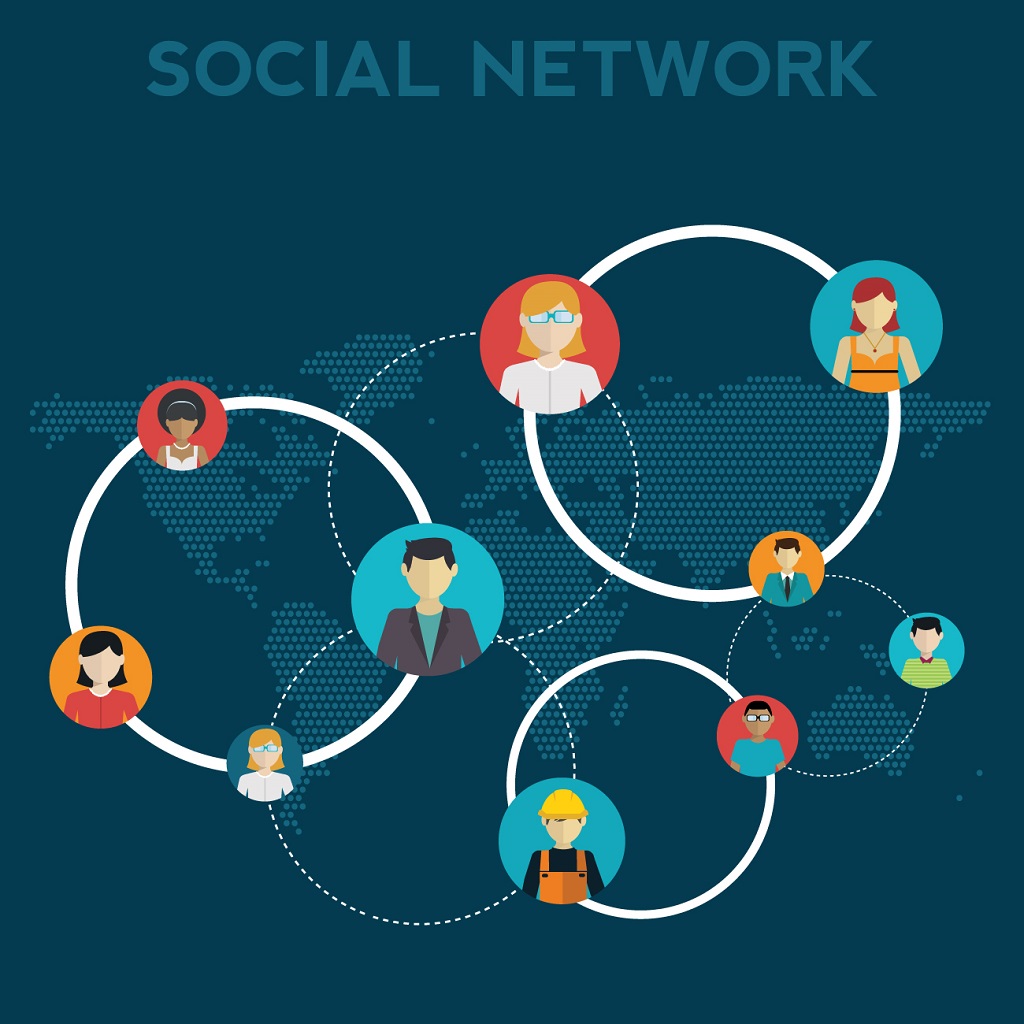Social networking refers to the online platforms and communities that allow individuals to connect and interact with others, share information, and build relationships. It has become an integral part of modern society, revolutionizing the way people communicate, share ideas, and stay connected. Through social networking sites, individuals can create personal profiles, post updates, photos, and videos, and engage in conversations with their friends, family, colleagues, and even strangers. These platforms enable users to express themselves, showcase their interests, and discover new information and opportunities. Social networking has extended beyond personal connections, with businesses and organizations also utilizing these platforms to connect with their target audiences, build brand awareness, and promote their products or services. It has transformed the way we socialize, gather information, and conduct business, making it an essential tool in today’s digital age. Additionally, social networking has also played a crucial role in social activism and awareness campaigns, allowing individuals to come together, share their voices, and bring attention to important issues. However, it is important to be mindful of the potential risks and challenges associated with social networking, such as privacy concerns, cyberbullying, and the spread of misinformation. It is essential for users to be cautious about the information they share online and to be aware of the impact their online presence can have on their personal and professional lives. Overall, social networking has revolutionized the way we connect, communicate, and share information, making it an integral part of our daily lives and shaping the world we live in today.

How Social Networking Works
Social networking has become an integral part of our daily lives, connecting people from all corners of the world and facilitating the exchange of information, ideas, and experiences. At its core, social networking relies on the concept of creating virtual communities where individuals can share, interact, and communicate with others who share similar interests or backgrounds. These platforms provide users with various tools and features that allow them to create their profiles, share personal photos and updates, and connect with friends, family, or even strangers. The process typically begins with creating an account and setting up a profile, where users can add personal information, such as their name, age, and location. Once the account is set up, users can start connecting with others by sending friend requests, following their profiles, or joining groups and communities. This enables individuals to expand their network and establish virtual relationships with like-minded people.
One of the key aspects of social networking is the ability to share content. Users can upload photos, videos, and status updates, allowing their friends and followers to see and interact with their posts. This content can range from personal anecdotes and achievements to news articles, memes, or entertainment. Additionally, users can express their opinions by commenting on or liking posts, sparking discussions and debates within their network. This feature provides a platform for diverse perspectives to be shared and encourages dialogue between individuals with different viewpoints.
Another significant element of social networking is the engagement it offers. Users can communicate with each other through private messages, comments, or chat features, fostering real-time conversations regardless of geographical barriers. This instant communication allows people to stay connected with friends and family, share personal experiences, and provide support during challenging times. Furthermore, social networking platforms often offer additional features such as video calls or live streaming, enabling users to connect face-to-face virtually and share experiences in real-time.
Social networking also plays a crucial role in information dissemination. News articles, blog posts, and other forms of media can be shared and spread rapidly through these platforms. This enables users to stay up-to-date with current events, discover new trends, or find information on various topics of interest. However, it is important to note that the authenticity and accuracy of the information shared on social networking platforms can vary. Users must exercise critical thinking and verify the credibility of the sources before accepting them as true.
Furthermore, social networking has evolved to become a powerful tool for businesses and organizations. Companies can create profiles and pages where they can promote their products or services, engage with customers, and build brand loyalty. By utilizing targeted advertising and analytics, businesses can reach specific demographics and tailor their content to attract potential customers. Social networking platforms also provide valuable insights into consumer behavior and preferences, allowing companies to refine their marketing strategies and make data-driven decisions.
In conclusion, social networking has revolutionized the way we connect, communicate, and share information. By creating virtual communities, facilitating content sharing, encouraging engagement, and serving as a platform for information dissemination, social networking has become an indispensable part of our lives. However, users must remain vigilant and discerning when consuming content, ensuring they are responsible digital citizens and contributing positively to the online community.
For Family and Friends
Family and friends are an essential part of our lives, providing us with love, support, and a sense of belonging. They are the ones who stand by us through thick and thin, offering a shoulder to lean on and celebrating our successes. The bond we share with our loved ones is invaluable and cannot be measured by any material possession. From the moment we are born, our family becomes our first teachers, guiding us on the path of life, imparting wisdom, and nurturing our growth. Their unconditional love and unwavering support create a safe haven where we can be ourselves without fear of judgment. Likewise, our friends become an extension of our family, chosen not by blood but by shared experiences and common interests. These friendships are built on trust, loyalty, and mutual understanding, creating a network of support that enriches our lives. Whether it’s a listening ear during challenging times or a hearty laugh during joyous occasions, our friends are always there by our side, making life’s journey more enjoyable. The connections we forge with our loved ones are a source of comfort, happiness, and strength. They provide us with a sense of belonging and remind us that we are not alone in this world. Whether it’s celebrating milestones, sharing meals, or simply enjoying each other’s company, these cherished relationships create memories that will last a lifetime. In a world that can be chaotic and unpredictable, the love and support of our family and friends serve as an anchor, grounding us and reminding us of what truly matters in life.

For Marketers
In the world of marketing, the key to success lies in ethical and compliant practices. Marketers play a crucial role in shaping consumer perceptions and driving business growth. By prioritizing transparency and authenticity, they can build trust and long-lasting relationships with their target audience. It is essential for marketers to understand the importance of delivering accurate and reliable information to consumers, ensuring that their messages align with their brand values. Effective marketers stay up-to-date with industry trends, leveraging innovative strategies and techniques to effectively reach and engage their target market. They strive to create compelling and persuasive campaigns that resonate with consumers, while avoiding any deceptive tactics that may compromise their integrity or harm their brand reputation. By focusing on creating value and solving consumer needs, marketers can establish themselves as trusted advisors, guiding customers towards making informed choices. Furthermore, marketers should embrace data-driven approaches, leveraging analytics and insights to optimize their campaigns and maximize their return on investment. They must also prioritize compliance with relevant regulations and industry guidelines to maintain a level playing field and foster fair competition. Ultimately, successful marketers understand that building a strong and reputable brand is a long-term endeavor that requires dedication, creativity, and ethical decision-making. By adhering to these principles, marketers can not only drive business growth but also contribute to a more trustworthy and transparent marketplace.
Major Social Networking Platforms
Social networking platforms have become an integral part of our daily lives, revolutionizing the way we connect with others and share information. These platforms have transformed the way we communicate, allowing us to stay connected with friends, family, and even strangers from around the world. With a wide range of major social networking platforms available, individuals have the opportunity to express themselves, share their thoughts and ideas, and engage in meaningful conversations with others. These platforms have created virtual communities where people can find like-minded individuals who share similar interests, hobbies, and passions. From Facebook to Instagram, Twitter to LinkedIn, and Snapchat to TikTok, each social networking platform offers its unique features and user experiences, catering to different demographics and preferences.
Facebook, the largest social networking platform, has more than two billion active users worldwide. It serves as a virtual meeting place where individuals can create personal profiles, connect with friends and family, join groups, and share photos, videos, and status updates. Facebook has evolved into a platform beyond personal connections, with businesses and organizations also utilizing it to promote their products and services. Instagram, on the other hand, focuses on sharing visual content, enabling users to upload and edit photos and videos, add captions, and engage with others through comments and likes. With its emphasis on aesthetics, Instagram has become a popular platform for influencers, photographers, and artists to showcase their work and build a following.
Twitter, known for its limited character count, allows users to express their thoughts and opinions in short messages called tweets. It has become a powerful tool for news dissemination, with users able to follow and engage with public figures, politicians, journalists, and organizations. LinkedIn, on the other hand, caters to professionals, serving as a platform for networking, job searching, and professional development. Users can create professional profiles, connect with colleagues and industry experts, and join groups to discuss relevant topics. LinkedIn is widely used for recruitment purposes, with employers and job seekers utilizing the platform to find suitable candidates and opportunities.
Snapchat, a platform initially known for its temporary photo and video sharing, has evolved into a multimedia messaging app. Users can send disappearing messages, create and share stories, and even play augmented reality games. Snapchat’s popularity lies in its ability to capture and share moments in real-time, allowing users to document their lives and experiences in a more authentic and spontaneous manner. Lastly, TikTok has taken the social media world by storm, particularly among younger demographics. It is a short-form video platform that allows users to create and share 15-second videos, often accompanied by music or sound clips. TikTok has become a creative outlet for users to showcase their talents, participate in viral challenges, and discover content from around the world.
In conclusion, major social networking platforms have transformed the way we connect, communicate, and share information. From Facebook to Instagram, Twitter to LinkedIn, Snapchat to TikTok, each platform offers unique features and experiences, catering to different preferences and demographics. These platforms have created virtual communities and allowed individuals to express themselves, find like-minded individuals, and engage in meaningful conversations. Whether it’s sharing personal updates, exploring visual content, expressing thoughts in short messages, networking professionally, capturing and sharing moments, or creating short videos, social networking platforms have become an integral part of our modern society.

Facebook is a widely recognized social media platform that has revolutionized the way we connect with others. With over 2.8 billion monthly active users, it has become an integral part of modern society. Facebook allows individuals to create profiles, connect with friends, share updates, photos, and videos, and engage in various online communities. It has proven to be a powerful tool for both personal and professional networking, as it enables users to stay connected and communicate with others across the globe. Furthermore, Facebook has provided a platform for businesses and organizations to reach a vast audience through targeted advertising and promotional campaigns. It has become a hub for sharing news, opinions, and information, allowing users to stay informed on a wide range of topics. In addition, Facebook has expanded its features to include marketplace, gaming, and live streaming, adding to its versatility and entertainment value. However, concerns have been raised regarding privacy and data security on the platform. While Facebook has implemented measures to protect user information, incidents of unauthorized access and data breaches have occurred. Nonetheless, Facebook remains a prominent and influential platform, shaping the way we interact and share information in the digital age.
Instagram is a widely popular social media platform that has revolutionized the way individuals connect and share their lives with others. With its user-friendly interface and visually appealing design, Instagram has become a go-to platform for people of all ages to share photos, videos, and stories. This platform enables users to express their creativity and showcase their unique perspectives through filters, captions, and hashtags. Instagram has also become a hub for businesses, influencers, and artists to promote their products, services, and talents, reaching a wide audience and establishing their online presence. Moreover, the platform offers various features like Instagram Live, IGTV, and Reels, which allow users to engage with their followers in real-time and create captivating content. Instagram has also fostered a sense of community through features such as direct messaging, comments, and likes, enabling users to interact with each other and build connections. Additionally, Instagram has become a source of inspiration, as users can follow accounts related to their interests, ranging from travel, fashion, food, fitness, and more. This platform has not only provided a space for self-expression but has also served as a source of entertainment and information for millions of people worldwide. Overall, Instagram has transformed the way we share, connect, and explore, making it a significant platform in the digital era.

Pinterest is a popular online platform that allows users to discover and save ideas for various interests, ranging from home decor and fashion to cooking and DIY projects. With its visually appealing interface and user-friendly features, Pinterest has gained immense popularity worldwide. Users can create virtual pinboards to collect and organize images and links they find inspiring or helpful. The platform offers a vast collection of images, making it a valuable resource for individuals seeking creative inspiration or practical advice. Pinterest also serves as a hub for sharing ideas and connecting with others who have similar interests. It fosters a sense of community by enabling users to follow each other, like and comment on pins, and even collaborate on group boards. Additionally, Pinterest has evolved into a marketplace for businesses, providing them with a platform to showcase products and services. Many brands have recognized the marketing potential of Pinterest and utilize it as a means to reach and engage with their target audience. Overall, Pinterest has revolutionized the way people discover and share ideas, making it a go-to platform for those seeking inspiration, creativity, and connection in the digital age.
Advantages and Disadvantages of Social Networking
Social networking has become an integral part of our daily lives, connecting people from all around the world and providing a platform for sharing thoughts, ideas, and experiences. It offers numerous advantages, but it also comes with its fair share of disadvantages.
One of the main advantages of social networking is the ability to connect with others. Through platforms like Facebook, Twitter, and Instagram, people can stay in touch with friends and family, even if they are thousands of miles away. This has revolutionized the way we communicate, making it easier than ever to maintain relationships and share important moments. Social networking also allows individuals to expand their networks and meet new people who share similar interests or professional goals. This can be particularly beneficial for those seeking career opportunities or looking to gain knowledge and insights from others in their field.
Additionally, social networking provides a platform for self-expression and creativity. Users can share their thoughts, opinions, and talents through posts, photos, and videos. This has given rise to a new wave of content creators, allowing individuals to showcase their skills and passions to a wide audience. Moreover, social networking platforms have become a hub for artists, musicians, and writers to promote their work, reaching a larger audience than ever before. This democratization of creativity has opened new doors for aspiring artists and has made artistic expression more accessible to all.
Another advantage of social networking is the facilitation of information sharing. News and updates can spread rapidly through platforms like Twitter, allowing users to stay informed about current events in real-time. This has made it easier for people to access news from various sources and stay up-to-date with the latest developments. Social networking also provides a platform for organizations and businesses to share information about their products or services, reaching a wider audience and potentially increasing sales or engagement.
However, social networking also has its drawbacks. One of the main disadvantages is the potential for privacy breaches. With the vast amount of personal information shared on these platforms, there is always a risk of identity theft or unauthorized access to sensitive data. Additionally, social networking platforms often collect and store user data, raising concerns about how this information is used and protected. This has led to debates about privacy rights and the need for stricter regulations in order to protect individuals’ personal information.
Another disadvantage of social networking is the potential for addiction and negative impacts on mental health. Spending excessive amounts of time on social media can lead to feelings of loneliness, depression, and anxiety. Comparing oneself to others based on their social media presence can also contribute to feelings of inadequacy and low self-esteem. Moreover, the constant exposure to curated versions of others’ lives can create unrealistic expectations and contribute to a distorted sense of reality.
Furthermore, social networking can also be a breeding ground for cyberbullying and online harassment. The anonymity provided by these platforms can embolden individuals to engage in harmful behaviors, targeting others with abusive or threatening messages. This can have severe consequences for the mental well-being of the victims and may even lead to offline harm. Additionally, the spread of fake news and misinformation on social networking platforms can have detrimental effects on society, leading to confusion, division, and even influencing political outcomes.
In conclusion, social networking undoubtedly offers numerous advantages, including the ability to connect with others, promote self-expression and creativity, and facilitate information sharing. However, it is important to be aware of the potential disadvantages, such as privacy breaches, negative impacts on mental health, cyberbullying, and the spread of fake news. By using social networking platforms responsibly and being mindful of the potential risks, individuals can enjoy the benefits while minimizing the drawbacks.
